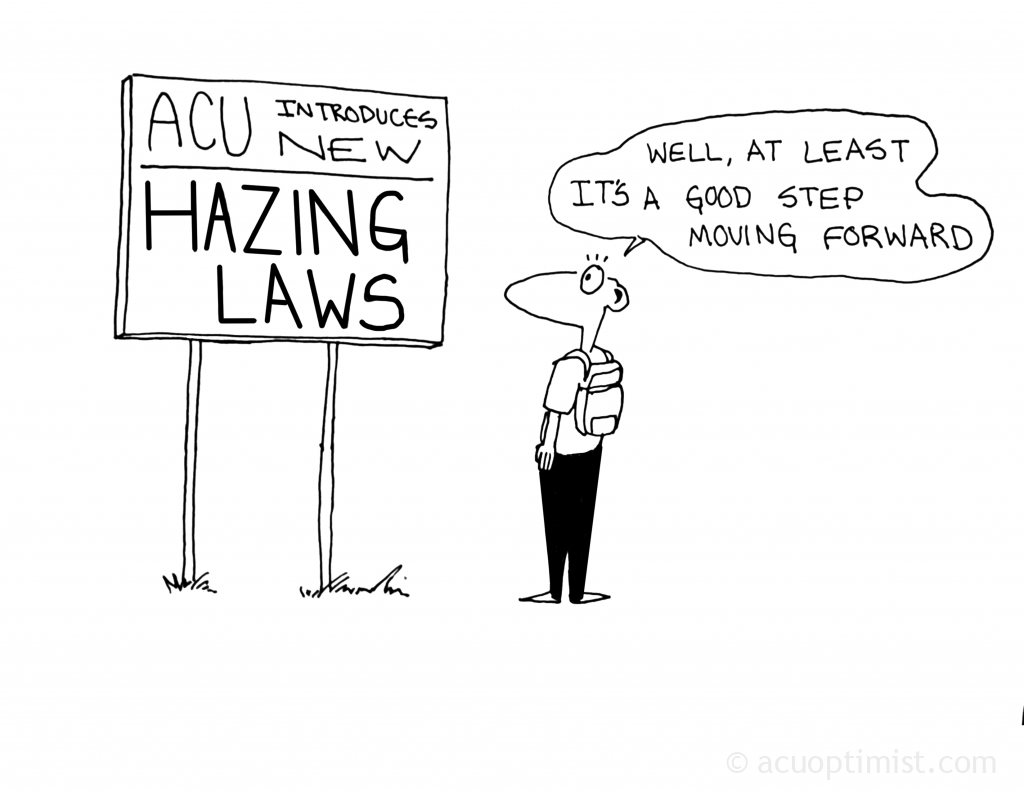Sept. 15, 2019, kicked off the start of women’s social club teas, the beginning of the rushing and pledging process on campus. With the start of the new rushing and pledging season comes the annual talk to the potential new members about how they should be treated and to the clubs about how the should be treating the new pledges.
Unfortunately, for years, incidents have made the news about an individual(s) who was pledging a fraternity or sorority for a campus and then ends up in a hospital, injured or sadly died just from participating in an activity that spiraled out of control. How did it get to this point? Why are students unknowingly risking their safety and their lives to be apart of an organization that promises a safe and loving community?
On Sept. 1, 2019, Senate Bill 38 went into effect, which will have new and better standards of safety for students on college campuses that help eliminate hazing for potential new members as they join a student organization, sorority, fraternity, and, in ACU’s case, social clubs. Senate Bill 38 clarifies the definition of hazing, which will allow for meaningful prosecution to those who violate the new anti-hazing law.
Sen. Zaffirini has been a huge advocate for wanting to end hazing on campuses throughout the state of Texas. In an interview with KXAN, Zaffirini said. “If we had passed this bill in 2017, perhaps those Texas students would be alive today. We have a lot of alumni who think of the good ol’ days. They think that was fun and what was really good-natured ribbing, but that is not what it is today.”
One of the students that Zaffirini was referring to was junior UT-Austin student Nicky Cumberland. Cumberland joined student organization Texas Cowboys, known for their part in firing off “Smokey the Cannon” at football games. Cumberland died from injuries he obtained in a car accident heading back to UT-Austin after a retreat that involved of numerous hazing activities. The activities consisted of consuming large quantities of alcohol, a gallon of milk, spam, cat food, hot sauce, minced garlic and a raw onion.
There were also some physical hazing incidents that took place, such as bear crawls, barrel rolls, human wheelbarrow races and being dropped off a distance away from the off-campus retreat site and having to find their way back. His death ignited the push to help get Senate Bill 38 passed and put into effect.
Another example of why this law change was needed was the case of Max Gruver. In September 2017, freshman Max Gruver from LSU died from an alcohol hazing accident with the Phi Delta Theta fraternity. Gruver’s parents even did their own research and found that on the national charter website and the school’s website the fraternity had no hazing accidents at all, which made the parents feel good about their son’s decision, and they encouraged him to pursue the organization. But they found out that the year before two reports were submitted to the school by an alumni and a concerned student about the use of excessive alcohol, drug use and hazing pledges.
In an interview with ABC News in 2017, the parents confirmed that if they knew this fraternity had known reports of hazing incidents, they would have strongly encouraged their son Max to look into another fraternity.
Mr. Gruver gives this advice to viewers, “If you are thinking about a fraternity, ask around about them. Don’t look at their marketing pieces, because they are showing you all the positives there. Ask older students, ask students who have been around for a long time.”
With this new law going into effect, we believe it will be really beneficial to future potential new members. One reason is that it allows them the chance to take into consideration which organization has had hazing incidents and how recent they were. They deserve the right to know that information about a group they are considering becoming a part of.
Another reason why this new law change will be beneficial is because it requires the universities to be held accountable as well as holding their student organizations accountable for their actions.
Senate Bill 38 is coming into effect at a well needed time. With this new anti-hazing law in place, it can help save the lives of those who could have succumbed to the same unfortunate deaths of Max Gruver and Nicky Cumberland.


